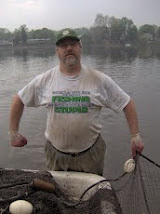Our guide on the
rafting trip through the highlands of Viti Levu was Toby. He is 38 and had been
negotiating the whitewater rapids of the Upper Navua River gorge for 19 years
with the outfitter Rivers Fiji. As he skillfully twirled and bounced the yellow
raft along the Navau, through majestic towering lava walls glistening from countless
waterfalls and with tendrils of tropical plants stretching from the upper edges
along he sang.
His voice was eerily beautiful.
Soft, high, he sang
first in Fijian in the dialect of his village before finishing the song in
English and describing how he is the ‘best Fiji boy anyone would ever meet.’ It
was a love song to a nameless girl the boy hoped to date. (Toby was married
with four children).
The song came from
nowhere, but later we learned that music and singing are an important part of Fijian culture. Later in our trip we would marvel at the voices and harmonies lifted in song. Anyway, we were pleasantly surprised by Toby's song and it came during a lull in the exhilarating rapids that he graced us with the song. Until then Toby was twirling that big old potato around to get us through the white water, sometimes going in sideways and pinioning that unwieldy craft into a perfect line through the rocks. He didn't get right every time, getting snagged on a rock to which he'd mutter "New Rock!"
 |
| XMAS TREE ROCK |
We were Toby’s only
passengers on this particular day, the rest of the rafts were groups of four
passengers and of course the guide. Toby would ask us to paddle sometimes when
necessary or to sit on one side of the raft or the other for weight balance,
but it was during a lull where the Navua calmed and the sun glinted off the
walls and we were
paddling slowly when he graced us with his song.
It was breathtakingly
beautiful and this oarsman with Rivers Fiji, with his gracious way and sinews
of muscle guiding us through the Upper Navua River gorge, considered one of the
top 10 whitewater rafting sites in the world, lifted our experience this day far
beyond expectations.
We were blessed.
Rafting along the Upper
Navua River had to happen for us once we saw pictures of the gorge, but then we
learned of the conservation our traveling down this river brings. The money we
spend on the excursion offsets the allure of big money from raping the land of its
resources. By harvesting the timber, mining for minerals or even damming the
Navau itself, there is much money to be earned, but the land would be damaged
forever.
Rivers Fiji and
O.A.R.S., a global whitewater rafting outfitter as the parent company,
approached the people of the villages along the Navua with this plan to protect
the land and to make some money. The people of the villages consider the river
as a direct connection to their ancestors.
Now there is still mining
and timber harvesting. As we bucked and jostled up the rugged road, we passed a
couple of logging trucks and there were tracks of road that led away from the
Navua for the trucks.
GOOD FOR MONEY BAD FOR
ENVIRONMENT
It takes up to 40 years
for prized mahogany to mature and this non-native tree was planted by the Fiji government
to make money. As mahogany matures its toxins meant to protect it from insects
and other plants kill off anything around it.
Even the leaves of a
mahogany tree falling into the water kills off the marine life.
The guide on the bus up
to the starting point of our rafting excursion and Toby mentioned this to us
several times, and for a while, before we entered the Navua River area mahogany
trees were everywhere.
The Upper Navua is a
shot gorge that runs 10.5 miles. The ancient lava walls soar to as much as 40
meters and during the wet season there are countless waterfalls. Toby pointed
out Christmas Rock and the water nears the top during the wet season. September
is still the dry season and sometimes the gorge narrowed to just a few meters
wide. Toby made sure to get us drenched in several still very dramatic waterfalls.
Rivers Fiji makes trips
down the Navua three days a week, Monday, Wednesday and Friday. We paid
O.A.R.S. directly for the trip while still home thereby avoiding 4% surcharge
added to nearly every credit card transaction in Fiji. We paid over $500 for the
day, and you are expected to tip the hard-working oarsmen, whether or not they
sing.
Toby’s courting song
was his only tune, but he told us about the 14 provinces of Fiji, scattered throughout
the 300+ islands of the nation and that each province had their own way of
speaking and before “common” Fijian was created and now taught in schools,
along with English, people from different provinces couldn’t understand each
other. It is said that in some circumstances children cannot communicate with
their grandparents from the village.
Toby also said he has
spent his life in the heartlands of Fiji and rarely goes to the coast, and even
confessed he’s afraid of the ocean. Rocks and whitewater in a fantastic adrenaline
rush down a shot gorge is nothing though.
If you travel to Viti
Levu, please help the conservation efforts with Rivers Fiji and make sure you
ask for Toby.
Vinaka vaka levu (thank
you very much) for reading.
Love Janet and greg
© 2022 by Gregory Dunaj






.jpg)
















































